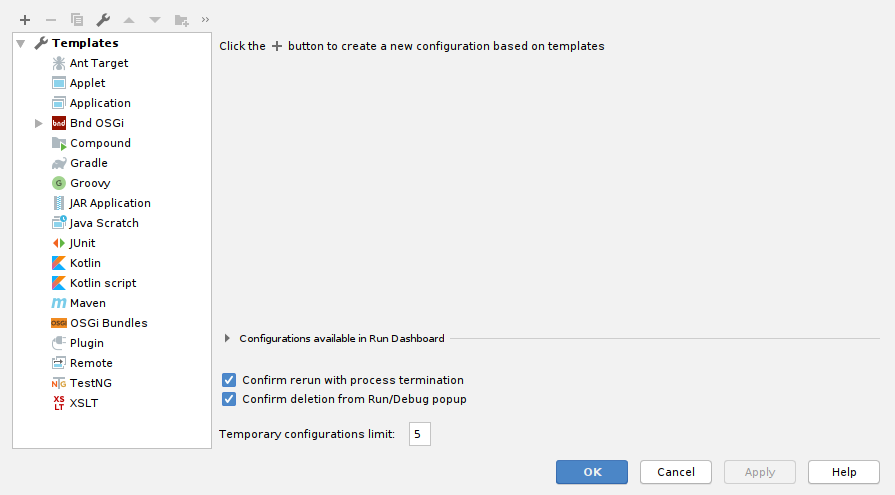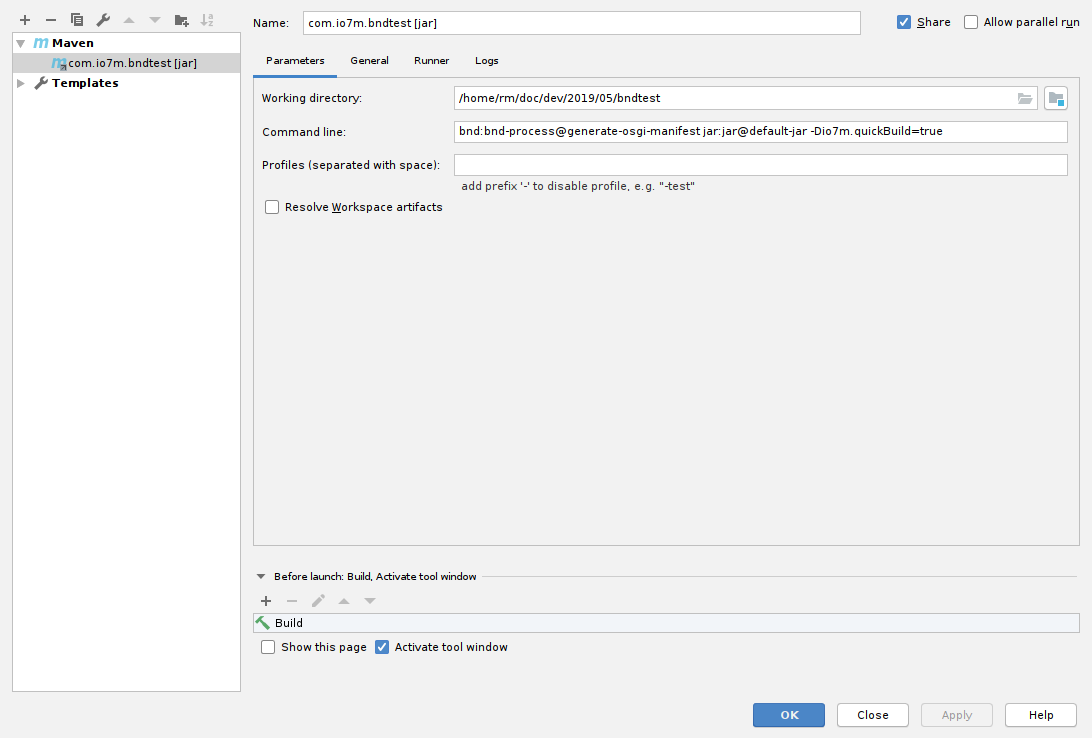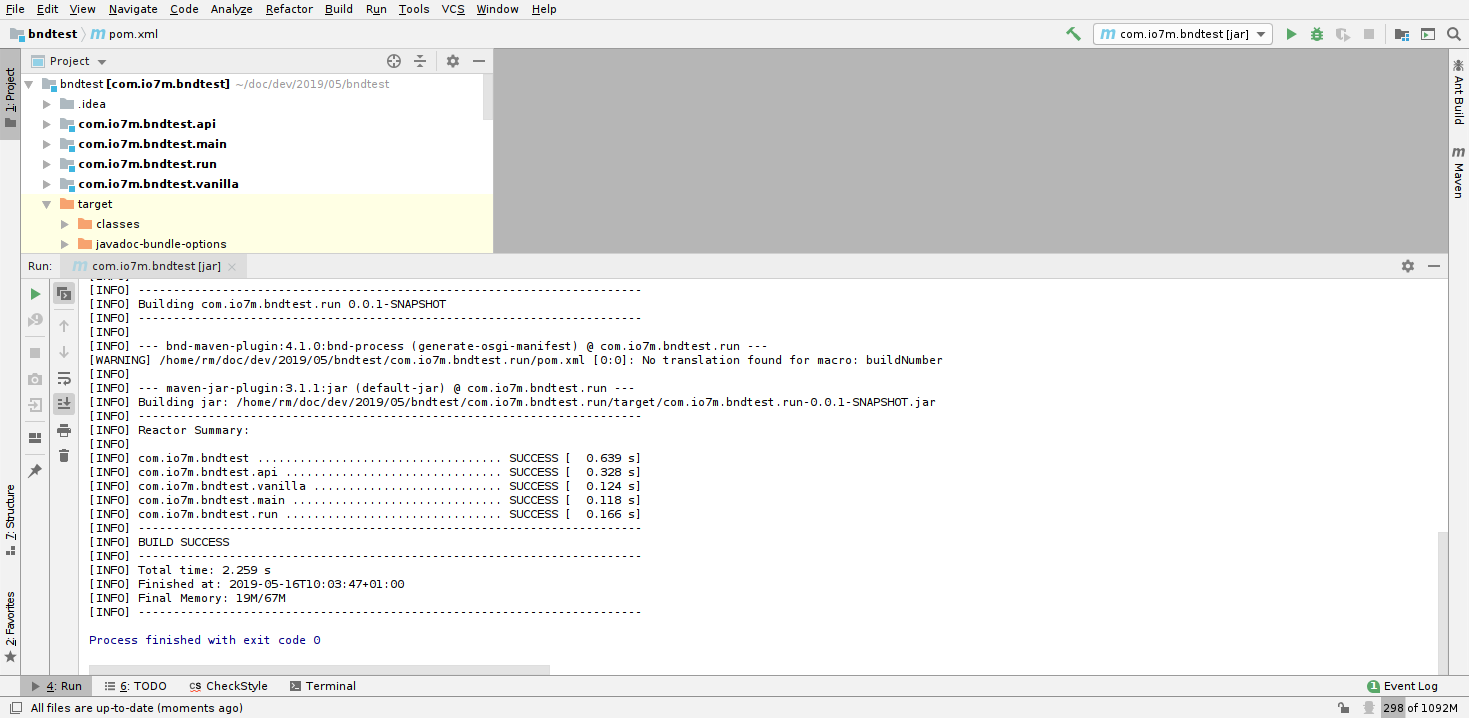I've been running a server on my LAN here for a couple of years. This week, I built a new machine and am in the process of trying to migrate to the new hardware.
However, something odd happened... With an SSH connection open to the
old server (cranberry), I booted the new server (vanilla). The open
SSH connection began to sporadically and repeatedly hang and then come
back to life. Shutting down vanilla caused the problem to go away. Some
investigation with Wireshark showed odd
TCP Retransmission events occurring, which I don't think I've ever
seen before and certainly shouldn't be happening on a LAN.
Sometimes, SSH connections to vanilla would work fine, and the
connections to cranberry would hang/resume instead. I couldn't
determine any reason for this to be happening; all my hardware is in
good shape.
Then, I tried to nmap vanilla and cranberry
from my workstation...
$ nmap -vvv cranberry ... MAC Address: 58:9C:FC:10:93:1F (FreeBSD Foundation) $ nmap -vvv vanilla ... MAC Address: 58:9C:FC:10:93:1F (FreeBSD Foundation)
I was firstly surprised at seeing a MAC address conflict, and then doubly surprised at seeing the string "FreeBSD Foundation" in what should be a hardware identifier.
Looking at ifconfig on cranberry and vanilla, I see:
$ ifconfig bridge0 bridge0: flags=8843<UP,BROADCAST,RUNNING,SIMPLEX,MULTICAST> metric 0 mtu 1500 ether 58:9c:fc:10:93:1f $ ifconfig bridge0 bridge0: flags=8843<UP,BROADCAST,RUNNING,SIMPLEX,MULTICAST> metric 0 mtu 1500 ether 58:9c:fc:10:93:1f
I'd created bridge devices on both machines to which to attach TAP devices for bhyve virtual machines. Evidently the generated MAC address on both was the same, and this MAC address leaked out onto the LAN. Packets would essentially arbitrarily go to either machine if both happened to be switched on at the same time.
The manual page says:
The if_bridge interface randomly chooses a link (MAC) address in the range reserved for locally administered addresses when it is created. This address is guaranteed to be unique only across all if_bridge interfaces on the local machine. Thus you can theoretically have two bridges on the different machines with the same link addresses. The address can be changed by assigning the desired link address using ifconfig(8).
Moral of the story: Assign your own MAC addresses to virtual devices. Pick an unused area in the MAC registry and go wild.
It's that time of year again.
-----BEGIN PGP SIGNED MESSAGE----- Hash: SHA512 Fingerprint | Comment - ------------------------------------------------------------------------- E369 81ED 130D B4F6 8D42 0248 BBFF DB75 5BAE D95D | 2020 personal 406D 6CE4 6463 FA78 8ABB 63A3 6AF3 0ECF 4211 F11C | 2020 maven-rsa-key (RSA key to sign Maven Central releases) -----BEGIN PGP SIGNATURE----- iIQEARYKACwWIQTjaYHtEw209o1CAki7/9t1W67ZXQUCXgyzMw4cbWFya0Bpbzdt LmNvbQAKCRC7/9t1W67ZXfhhAP4oSb5KTnJ84ZSKkArxSU6tRFhYdnVK7tRK2SWx P1fKlwD/XdIb2ZsJ2U7UerpfPQ2e+MEhg0J+h6wHak+lOow96ww= =kZge -----END PGP SIGNATURE-----
Keys are published to the keyservers as usual.
In a recent post to the bndtools-users mailing list, I
expressed a bit of frustration with my experience of trying out
Bndtools for what I think must be about
the fourth time. Jürgen Albert had mentioned on the osgi-dev
list that he had a working environment where, every time he
clicked "Save" in his IDE, bundles would automatically be built
and deployed to a running OSGi container.
This gave him effectively live updates to running code during development. I'd still not
been able to achieve this in my Maven
and IDEA environment,
so I took another look at Bndtools to see if it could be
done. Any OSGi user will be familiar with being able to deploy
new parts of a running system without having to restart it, but
actually being able to instantly deploy code every time you change
as little as a single line of code is probably not something that
every OSGi user has access to.
On the bndtools-users list, Raymond Auge mentioned to me that he'd
recently added functionality to an as-yet-unreleased version of the
bnd-run-maven-plugin
that might be able to solve the problem. It worked beautifully!
Using the following setup, it's possible to get live code updates
without having to stray outside of a traditional Maven setup; your
build gets to remain a conventional Maven build and, if you don't
use the feature, you probably don't have to know the plugin exists
at all.
The setup described here assumes a multi-module Maven project. I describe it in these terms because all of my projects are multi-module, and it should be trivial to infer, for anyone familiar with Maven, the simpler single-module setup given the more complex multi-module setup.
A complete, working example project is available on GitHub. The example project contains:
com.io7m.bndtest.api: A simple API specification for hello world programs.com.io7m.bndtest.vanilla: An implementation of thecom.io7m.bndtest.apispec.com.io7m.bndtest.main: A consumer of thecom.io7m.bndtest.apispec; it looks up an implementation and uses it.com.io7m.bndtest.run: Administrative information for setting up an OSGi runtime.
At the time of writing, the version of the bnd-run-maven-plugin
you need is currently only available as a development snapshot.
Add the following pluginRepository to the root POM of your
Maven project:
<pluginRepositories>
<pluginRepository>
<id>bnd-snapshots</id>
<url>https://bndtools.jfrog.io/bndtools/libs-snapshot/</url>
<layout>default</layout>
<releases>
<enabled>false</enabled>
</releases>
</pluginRepository>
</pluginRepositories>
This will no longer be necessary once version 4.3.0 is officially
released.
Add an execution of this plugin in the root POM of your project:
<build>
<plugins>
...
<plugin>
<groupId>biz.aQute.bnd</groupId>
<artifactId>bnd-run-maven-plugin</artifactId>
<version>4.3.0-SNAPSHOT</version>
</plugin>
</plugins>
</build>
Add a module to your project (in the example code, this is com.io7m.bndtest.run) that will be used to declare
the information and dependencies required to start a basic
OSGi runtime. In this case, I use Felix
and install a minimal set of services such as a Gogo shell and Declarative Services.
These aren't necessary for the plugin to function, but the example
code on GitHub uses Declarative Services, and the Gogo shell makes
it easier to poke around in the OSGi runtime to see what's going on.
The POM file for this module should contain dependencies for all of the bundles you wish to install into the OSGi runtime, and all the OSGi framework and services. In my case this looks like:
<dependencies>
<dependency>
<groupId>${project.groupId}</groupId>
<artifactId>com.io7m.bndtest.api</artifactId>
<version>${project.version}</version>
</dependency>
<dependency>
<groupId>${project.groupId}</groupId>
<artifactId>com.io7m.bndtest.vanilla</artifactId>
<version>${project.version}</version>
</dependency>
<dependency>
<groupId>${project.groupId}</groupId>
<artifactId>com.io7m.bndtest.main</artifactId>
<version>${project.version}</version>
</dependency>
<dependency>
<groupId>org.apache.felix</groupId>
<artifactId>org.apache.felix.framework</artifactId>
</dependency>
<dependency>
<groupId>org.apache.felix</groupId>
<artifactId>org.apache.felix.gogo.shell</artifactId>
</dependency>
<dependency>
<groupId>org.apache.felix</groupId>
<artifactId>org.apache.felix.gogo.command</artifactId>
</dependency>
<dependency>
<groupId>org.apache.felix</groupId>
<artifactId>org.apache.felix.shell.remote</artifactId>
</dependency>
<dependency>
<groupId>org.apache.felix</groupId>
<artifactId>org.apache.felix.shell</artifactId>
</dependency>
<dependency>
<groupId>org.apache.felix</groupId>
<artifactId>org.apache.felix.scr</artifactId>
</dependency>
<dependency>
<groupId>org.apache.felix</groupId>
<artifactId>org.apache.felix.log</artifactId>
</dependency>
<dependency>
<groupId>org.osgi</groupId>
<artifactId>osgi.promise</artifactId>
</dependency>
</dependencies>
A single execution of the bnd-run-maven-plugin is needed in this
module, along with a simple bndrun file. Note that the name of the
plugin exection must be unique across the entire set
of modules in the Maven reactor. You will be referring to this name
later on the command line, so pick a sensible name (we use main
here). Note that the name of the bndrun file can be completely
arbitrary; the name of the file does not have to be in any way
related to the name of the plugin execution.
<build>
<plugins>
<plugin>
<groupId>biz.aQute.bnd</groupId>
<artifactId>bnd-run-maven-plugin</artifactId>
<executions>
<execution>
<id>main</id>
<configuration>
<bndrun>main.bndrun</bndrun>
</configuration>
</execution>
</executions>
</plugin>
</plugins>
</build>
The main.bndrun file is unsurprising to anyone with a passing
familiarity with bnd. We specify that we want Felix to be the
OSGi framework, and we list the set of bundles that should be
installed and executed. We don't bother to specify version numbers
because this information is already present in the Maven POM.
$ cat main.bndrun -runfw: \ org.apache.felix.framework -runee: JavaSE-11 -runrequires: \ osgi.identity;filter:='(osgi.identity=com.io7m.bndtest.main)' -runbundles: \ com.io7m.bndtest.api, \ com.io7m.bndtest.main, \ com.io7m.bndtest.vanilla, \ org.apache.felix.gogo.command, \ org.apache.felix.gogo.runtime, \ org.apache.felix.gogo.shell, \ org.apache.felix.log, \ org.apache.felix.scr, \ org.apache.felix.shell, \ org.apache.felix.shell.remote, \ osgi.promise, \
Now that all of this is configured, it's necessary to do a
full Maven build and execute the plugin. Note that, due to
a Maven limitation, it is necessary to call the bnd-run-maven-plugin
in the same operation as the package lifecycle. In other
words, execute this:
$ mvn package bnd-run:run@main
The @main suffix to the run command refers to the named main
execution we declared earlier. The above command will run a Maven
build and then start an OSGi instance and keep it in the foreground:
$ mvn package bnd-run:run@main
[INFO] Scanning for projects...
[INFO] ------------------------------------------------------------------------
[INFO] Reactor Build Order:
[INFO]
[INFO] com.io7m.bndtest [pom]
[INFO] com.io7m.bndtest.api [jar]
[INFO] com.io7m.bndtest.vanilla [jar]
[INFO] com.io7m.bndtest.main [jar]
[INFO] com.io7m.bndtest.run [jar]
...
[INFO] ---------------< com.io7m.bndtest:com.io7m.bndtest.run >----------------
[INFO] Building com.io7m.bndtest.run 0.0.1-SNAPSHOT [5/5]
[INFO] --------------------------------[ jar ]---------------------------------
[INFO]
...
[INFO] --- bnd-run-maven-plugin:4.3.0-SNAPSHOT:run (main) @ com.io7m.bndtest.run ---
____________________________
Welcome to Apache Felix Gogo
g! lb
START LEVEL 1
ID|State |Level|Name
0|Active | 0|System Bundle (6.0.3)|6.0.3
1|Active | 1|com.io7m.bndtest.api 0.0.1-SNAPSHOT - Bnd experiment (API) (0.0.1.201905160844)|0.0.1.201905160844
2|Active | 1|com.io7m.bndtest.main 0.0.1-SNAPSHOT - Bnd experiment (Main consumer) (0.0.1.201905160845)|0.0.1.201905160845
3|Active | 1|com.io7m.bndtest.vanilla 0.0.1-SNAPSHOT - Bnd experiment (Vanilla implementation) (0.0.1.201905160845)|0.0.1.201905160845
4|Active | 1|Apache Felix Gogo Command (1.1.0)|1.1.0
5|Active | 1|Apache Felix Gogo Runtime (1.1.2)|1.1.2
6|Active | 1|Apache Felix Gogo Shell (1.1.2)|1.1.2
7|Active | 1|Apache Felix Log Service (1.2.0)|1.2.0
8|Active | 1|Apache Felix Declarative Services (2.1.16)|2.1.16
9|Active | 1|Apache Felix Shell Service (1.4.3)|1.4.3
10|Active | 1|Apache Felix Remote Shell (1.2.0)|1.2.0
11|Active | 1|org.osgi:osgi.promise (7.0.1.201810101357)|7.0.1.201810101357
At this point, there is a running OSGi container in the foreground.
The bnd-run-maven-plugin is monitoring the jar files that were created
as part of the Maven build and, if those jar files are changed, the plugin will
notify the framework that it's necessary to reload the code.
Now, given that we want to make rebuilding and updating running code as quick as possible, we almost certainly don't want to have to do a full Maven build every time we change a line of code. Luckily, we can configure IDEA to do the absolute minimum amount of work necessary to achieve this.
First, open the Run Configurations window:

Add a Maven build configuration:

The precise Maven command-line used will depend on your
project setup. In the example code, I have an execution of the
bnd-maven-plugin named generate-osgi-manifest that does the work
necessary to create an OSGi manifest. I also have an execution of the
maven-jar-plugin named default-jar that adds the generated manifest
to the created jar file. I also declare a property io7m.quickBuild
which turns off any plugin executions that aren't strictly necessary
during development. All of these things are configurations declared
in the primogenitor
parent POM that I use for all projects, but none of them should
be in any way unfamiliar to anyone that has put together a basic
bnd-maven-plugin-based project. The gist is: Tell Maven to run
the bnd-maven-plugin and generate an OSGi manifest for each module,
and then tell it to create a jar for each module.
The other important item is to add a Before Launch option (at the bottom of the window) that runs a normal IDE build before Maven is executed. The reason for this is speed: We want the IDE to very quickly rebuild class files (this is essentially instant on my system), and then we want to execute the absolute bare minimum in terms of Maven goals after the IDE build.
One small nit here: The root module of your project will almost certainly
have a packaging of type pom instead of type jar. The bnd-maven-plugin
will (correctly) skip the creation of a manifest file for this module, and
this will then typically cause the maven-jar-plugin to complain that there
is no manifest file to be inserted into the jar that it's creating. A quick
and dirty workaround is to do this in the root of the project:
mkdir -p target/classes/META-INF touch target/classes/META-INF/MANIFEST.MF
In the example project, I include a small run.sh script that actually does
this as part of starting up the OSGi container:
#!/bin/sh mkdir -p target/classes/META-INF touch target/classes/META-INF/MANIFEST.MF exec mvn package bnd-run:run@main
I strongly recommend not doing this as part of the actual Maven build itself; this is something that's only needed by developers who are making use of this live code updating setup during development, and isn't something that the Maven build needs to know about. By executing specific plugins, we're not calling Maven in the way that it would normally be called and therefore it's up to us to ensure that things are set up correctly so that the plugins can work.
With both of these things configured, we should now be able to click Run
in IDEA, and the code will be built in a matter of seconds:

Assuming that our OSGi container is still running somewhere, the rebuilt jar files will be detected and the code will be reloaded automatically:
[INFO] Detected change to /home/rm/doc/dev/2019/05/bndtest/com.io7m.bndtest.api/target/com.io7m.bndtest.api-0.0.1-SNAPSHOT.jar. Reloading. Speak: onDeactivate Speak: onActivate Speak: Hello again, again!
Once again, OSGi demonstrates how unique it currently is: I don't know of any other system that provides a type-safe, version-safe, dynamic update system such as this. I know of other systems that do it dangerously, or in a type-unsafe way, or without the benefits of strong API versioning, but none that do things as safely and correctly as OSGi.

